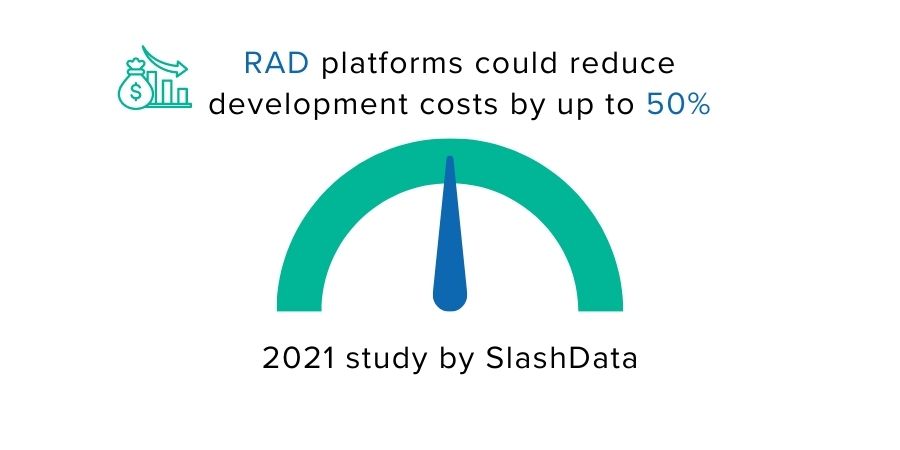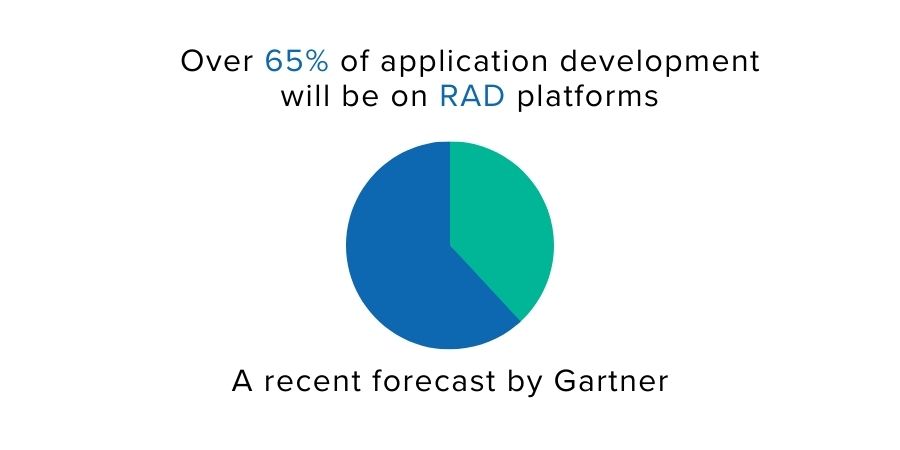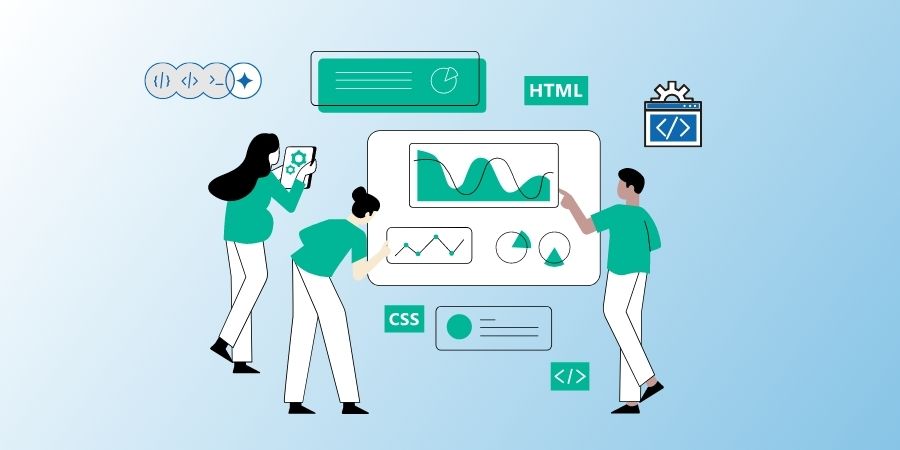
A Brief History of RAD and Low-Code Platforms
The journey of software development methodologies has been a fascinating one, punctuated by continuous advancements and the evolution of new paradigms. Traditional software development approaches, such as the Waterfall model, were the mainstay of the industry until the late 20th century. However, these methods' rigid, linear nature made them ill-suited to cater to the dynamic needs of the digital era. The industry's quest for more flexible, efficient, and accessible solutions led to the birth of Rapid Application Development (RAD) in the 1980s. RAD was conceived as a reaction to the limitations of traditional methodologies, emphasizing speed, flexibility, and user involvement. Proposed by IBM in the 1980s, RAD was revolutionary for its time, promoting a non-linear approach that encouraged iterative development and active user participation. Over the years, the RAD model has undergone significant evolution, adapting to advancements in technology and changes in industry dynamics.
Low-code platforms emerged much later, around the early 2010s, as a response to the increasing demand for software and the growing complexity of development processes. By providing a visual, drag-and-drop interface for development, low-code platforms aimed to democratize software development, reducing the dependency on skilled programmers and enabling even non-technical users to create functional applications.
The Evolution and Dominance of RAD and Low-Code Platforms
In the rapidly evolving software development landscape, the quest for more efficient, accessible, and cost-effective solutions has given birth to innovative methodologies. Two such methodologies, Rapid Application Development (RAD) and Low-Code platforms, have transformed the traditional development paradigm, offering accelerated development cycles and reduced barriers to entry. However, among these emerging trends, RAD, characterized by its unique features and benefits, has garnered significant popularity, positioning low-code platforms as a subset within its expansive realm.
To appreciate the rising trend of RAD and its dominance over low-code platforms, it's crucial to delve into the distinguishing features that set RAD apart. At the heart of RAD's appeal is its emphasis on speed, flexibility, and customization, largely enabled by offering developers direct access to source code. This feature is a stark contrast to low-code platforms, which often limit customization capabilities due to restricted access to underlying source code.
The freedom to interact directly with the source code empowers developers to modify, tweak, and adapt base code to suit specific project requirements. This level of customization bypasses the constraints of pre-defined templates and modules characteristic of low-code platforms, allowing for the creation of truly bespoke software solutions. Furthermore, this inherent flexibility of RAD extends beyond code customization to encompass the entire development process, accommodating changes and iterations in real time, thus aligning with the dynamic nature of business requirements.
The accelerated development time is another key advantage of RAD. By minimizing coding efforts and employing reusable components, RAD expedites the development process. This accelerated development cycle resonates with the fast-paced digital world, where businesses demand rapid deployment of applications to stay competitive. The ability to quickly transform ideas into functional software not only offers a competitive advantage but also significantly reduces the time-to-market, a critical factor in today's digital age.
One of the most compelling aspects of RAD, which underscores its growing preference, is its potential to reduce the effective development cost. As software development projects are notorious for cost overruns and exceeding budgets, the prospect of cost reduction is immensely appealing to organizations. According to a 2021 study by SlashData, RAD platforms could reduce development costs by up to 50%, marking a significant saving. This cost-effectiveness, coupled with rapid development, positions RAD as an attractive proposition for businesses looking to optimize their software development investments.
Despite these compelling advantages of RAD, it's essential to acknowledge that low-code platforms have carved a niche for themselves in the development landscape. By offering a simplified, drag-and-drop interface for development, low-code platforms have democratized software development, enabling citizen developers or business analysts with limited programming knowledge to create functional applications.
However, the overlapping benefits RAD offers, coupled with the added advantages of source code access, cost savings, and the ability to create truly bespoke solutions, have resulted in an industry-wide shift towards RAD. A recent forecast by Gartner predicts that by 2024, over 65% of application development will be on RAD platforms. This projected trend not only signifies RAD's growing popularity but also indicates its potential to reshape the software development industry.
In conclusion, the evolution of software development methodologies from traditional approaches to low-code platforms and now to RAD reflects the industry's continuous quest for efficiency, accessibility, and cost-effectiveness. While both RAD and low-code platforms have their unique merits, the industry trend is clearly leaning towards RAD, given its added benefits and alignment with the dynamic nature of today's digital world. As we continue to navigate the future of software development, RAD emerges not just as a passing trend but as a transformative force poised to redefine the industry.








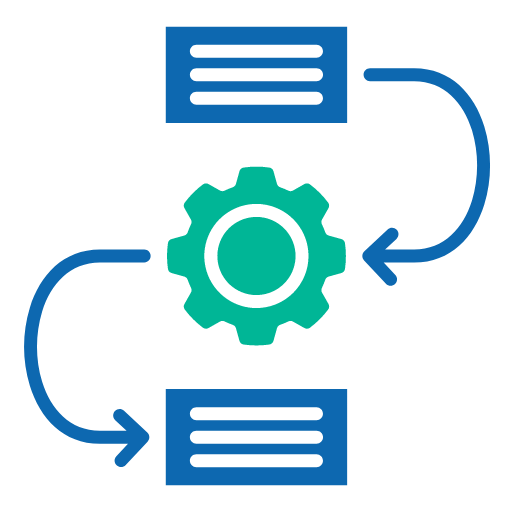


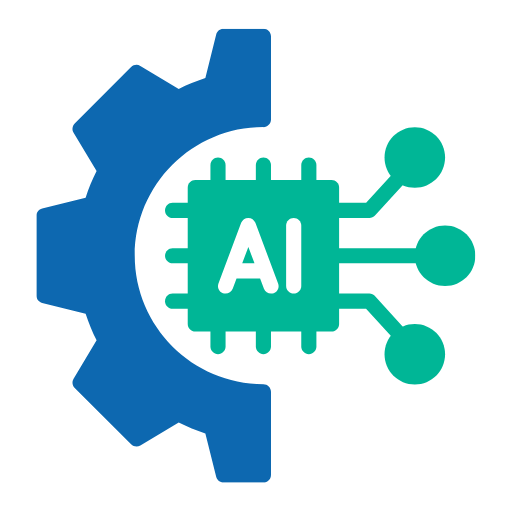


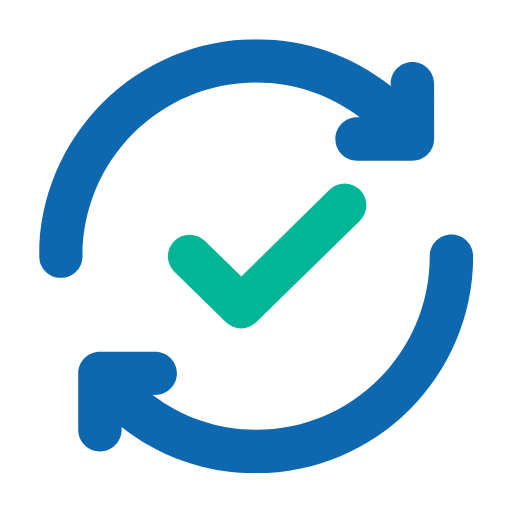




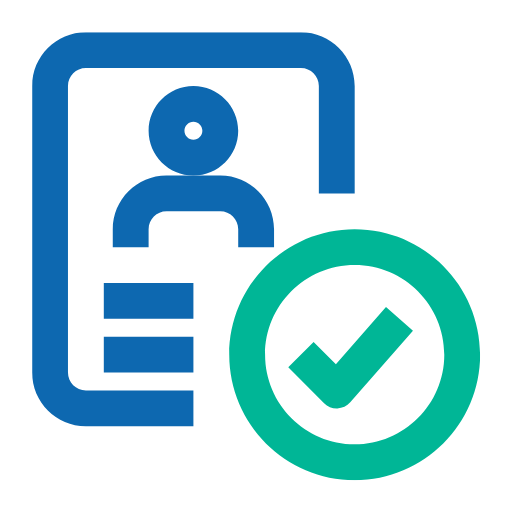


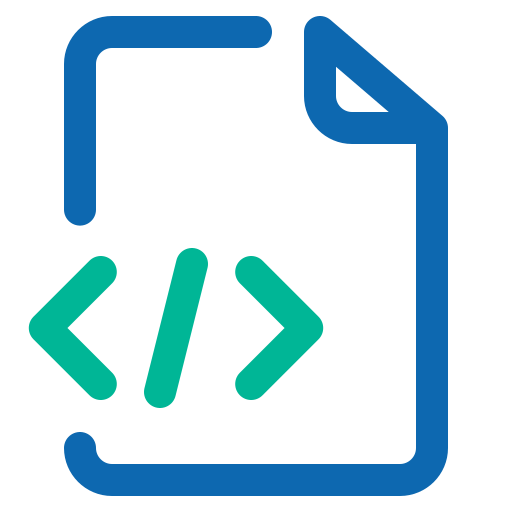
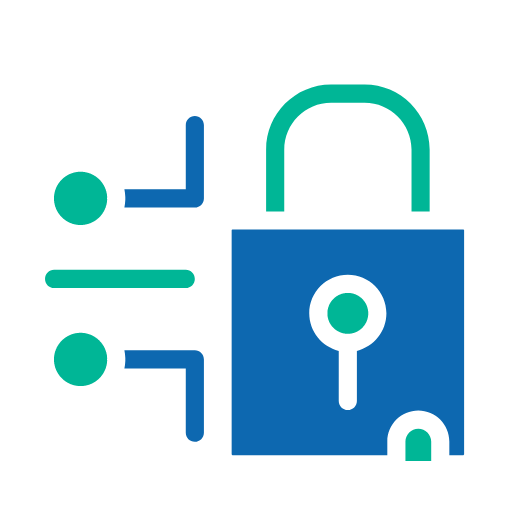
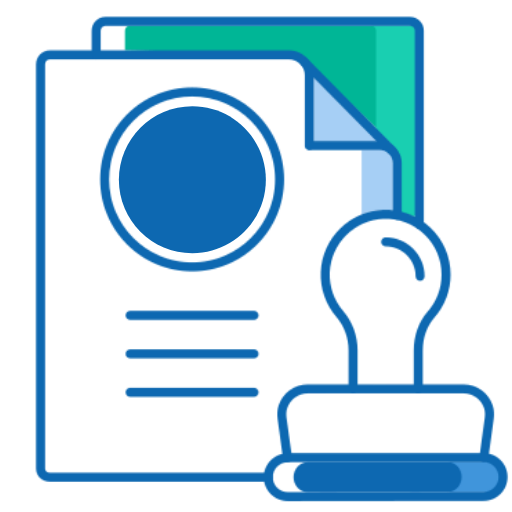
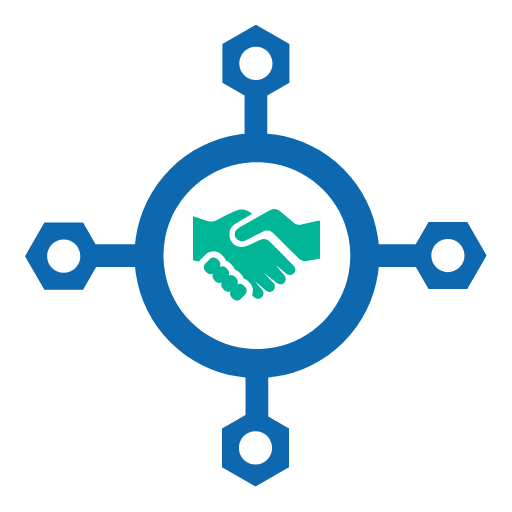

 Batoi Corporate Office
Batoi Corporate Office